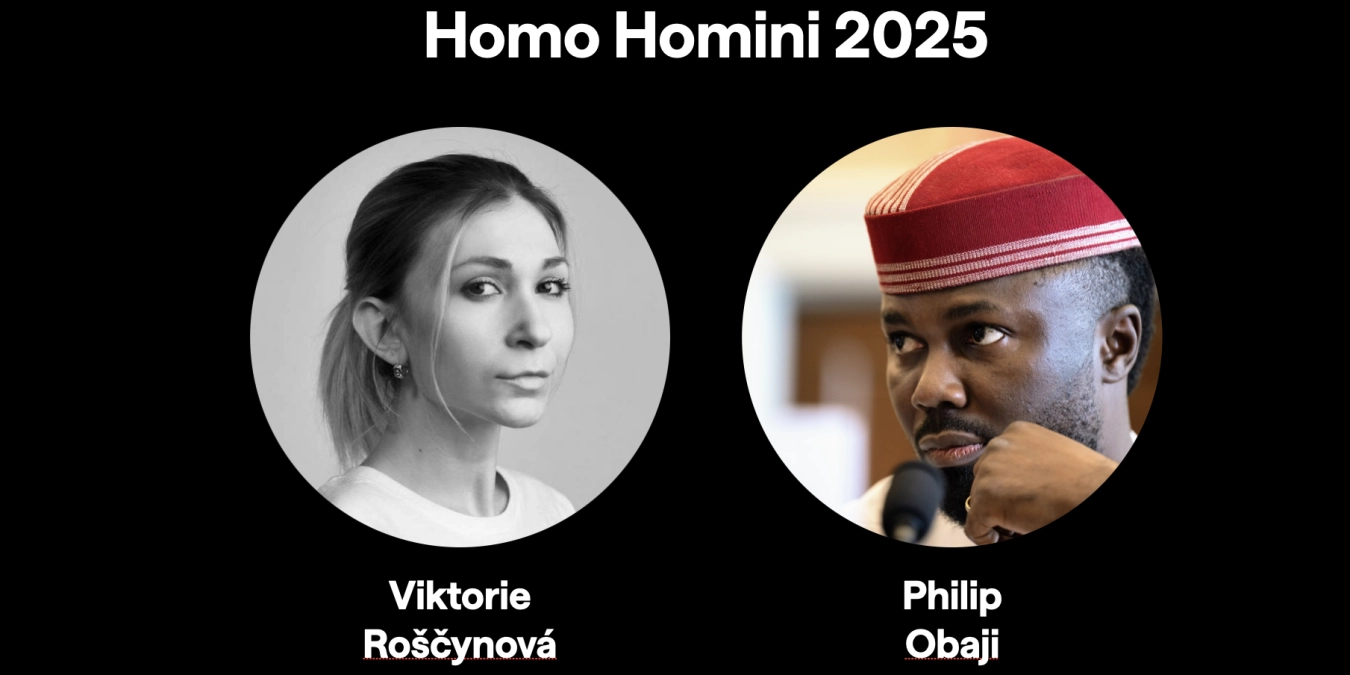Torture and Death as a Reward for Work: a Journalist from Nigeria and a Reporter from Ukraine to Receive the Homo Homini Award
Published: Feb 24, 2025 Reading time: 4 minutes Share: Share an articleFor the first time in its history, the Homo Homini Award has two laureates. Nigerian Philip Obaji mapped the crimes of the Wagner Group in Central Africa. Whereas, Ukrainian Viktoria Roshchyna brought stories of the inhabitants of the Russian-occupied territories of Ukraine. Both paid a huge price for their work: Obaji was tortured, and Roshchyna died in Russian captivity—her body has not been returned to her family.

Philip Obaji
A tireless fighter for the rights of exploited ordinary citizens, within the past seven years, Philip Obaji described more than 100 cases of abuse committed by Russian paramilitary units in West and Central Africa. Despite personal threats and great danger, he has documented cases of massacres, rape, torture and oppression of ordinary villagers by Russian mercenaries of the Wagner Group and its successor, the Africa Corps, in the Central African Republic and Mali. In the Central African Republic, he was tortured for his work.
Obaji's work has been published by a number of media outlets, including The Guardian and Al Jazeera; he has spent the last decade mapping the refugee trade in West and Central Africa, portraying it as an overlooked consequence of war. Obaji has received numerous awards for his work, including the Jaime Brunet International Human Rights Prize (2022) and the One World Media International Journalist of the Year Award (2023). He is the first Nigerian to win both awards.
Victoria Roshchyna
As a freelance editor, Roshchyna collaborated with a number of Ukrainian and international media outlets, such as Ukrainska Pravda, the Hromadske portal, and Radio Free Europe/Radio Liberty. During her career, she covered complex and dangerous topics such as crime, trials, and human rights violations. Since February 2022, she focused on topics related to Russian aggression against her country, bringing information mainly from the occupied territories.
In March 2022, Victoria Roshchyna was captured by Russian forces while trying to reach occupied Mariupol during a reporting trip and held captive for ten days. Notwithstanding such a gruesome experience, Roshchyna did not stop her dangerous work. In August 2023, she disappeared while traveling through Russia to the occupied Ukrainian territories. In the spring of 2024, the Russian Ministry of Defence confirmed that she had been captured. Her name later appeared on the list of prisoners intended for exchange. However, this did not come to pass. According to a report by the Russian Ministry of Defence, she died during a transfer from one Russian prison to another. In early October 2024, the Russian side informed her family that Victoria had died on September 19. The letter did not state anything about the circumstances, causes, or exact place of death. Her body has not yet been officially identified or released to her family for burial.
According to the Ukrainian Media Initiative for Human Rights, Roshchya was held in detention facilities where torture is common. The Ukrainian prosecutor's office, which investigated her disappearance, reclassified her case as a war crime and murder.
At least 91 Ukrainian media workers have been killed during the Russian invasion so far. They we killed directly in the performance of their profession or fell as members of the Ukrainian armed forces. Another 30 journalists remain in Russian captivity.
Homo Homini Award Ceremony
The award ceremony will take place on March 12, 2025, in Prague, when the next edition of the One World Human Rights Film Festival will be officially opened. The Homo Homini Award will be presented to Philip Obaji in person by former Slovak President Zuzana Čaputová. The ceremony will be broadcast live online on People in Need social media channels.



